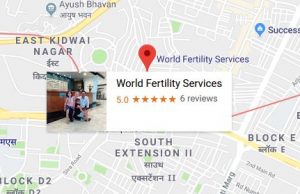After multiple unsuccessful IVF cycles, couples often ask about alternative techniques that they can try on their next cycle to increase their chance of pregnancy. One such technique is endometrial scratching. So, is endometrial scratching as uncomfortable as it sounds, and can it increase your chance of having a baby?
What is endometrial scratching?
An endometrial scratch is a procedure used to help embryos implant more successfully after In-Vitro Fertilisation (IVF) or Intracytoplasmic Sperm Injection (ICSI) treatment. It is generally only used for patients who have experienced multiple unsuccessful IVF cycles, despite the transfer of good quality embryos.
The procedure is sometimes referred to as an endometrial biopsy, as it involves taking a biopsy of the lining of the uterus, called the ‘endometrium’, using a thin catheter (pipille) that is passed through the cervix. No anaesthetic is required, but patients are generally advised to take over-the-counter pain medication beforehand as it can cause some pain. Pain during the scratch procedure was reported during one study as an average of 6/10. An endometrial biopsy can also be performed at the same time as a hysteroscopy.
An endometrial scratch is best performed in the week or so prior to the start of an IVF or frozen embryo transfer (FET) cycle (the luteal phase). This is a week after ovulation and a few days before a woman’s period is due. Your fertility specialist will provide you with specific guidance if your menstrual cycles are irregular.
Does endometrial scratching increase your chance IVF success?
Currently, the evidence as to whether endometrial scratching increases your chance of pregnancy from IVF is not clear cut.
In 2014, a randomised controlled trial of 387 women investigated whether endometrial scratching could improve the live birth rate for women who have had previous IVF failure. The study found that compared to a placebo group, endometrial scratching did not improve live birth rates for women with one previous IVF failure, but it may improves rates for women with two or more failed IVF cycles.
A review of existing research into endometrial scratching, presented this month at the annual meeting of European Society of Human Reproduction and Embryology (ESHRE), indicated that endometrial scratching appears to increase the chance of a pregnancy for couples trying to conceive naturally or with Intrauterine Insemination (IUI). The review examined eight trials, totalling over 1000 women. While the review suggested the procedure can increase success rates, the quality of the studies from which the result was derived was described as ‘very low’.
Larger studies are still required to validate whether endometrial scratching does in fact increase pregnancy rates from fertility treatment or spontaneous conception.
How might endometrial scratching improve pregnancy rates?
It is thought that endometrial scratching may trigger a ‘repair reaction’ in the uterine lining, and that this new lining may be more receptive to an embryo implanting, therefore increasing the chance of pregnancy. Additionally, improved implantation rates may be the result of the genes responsible for implantation being ‘switched on’, as a result of the endometrial scratch. At this stage, both hypotheses require further investigation.
When might fertility specialists recommend an endometrial scratch?
As there is currently not enough conclusive evidence as to the benefits of endometrial scratching, and since the procedure is both uncomfortable and has an additional cost associated with it, most fertility specialists won’t recommend it in the first instance.
However for patients that have experienced at least two unsuccessful IVF cycles, particularly if the patient is keen to try something new, endometrial scratching may be performed and may make a difference to some women.
If you are interested in finding out more about endometrial scratching, the next step is to discuss your concerns with your fertility specialist and develop a plan for treatment that best addresses your particular situation.



 WhatsApp us
WhatsApp us